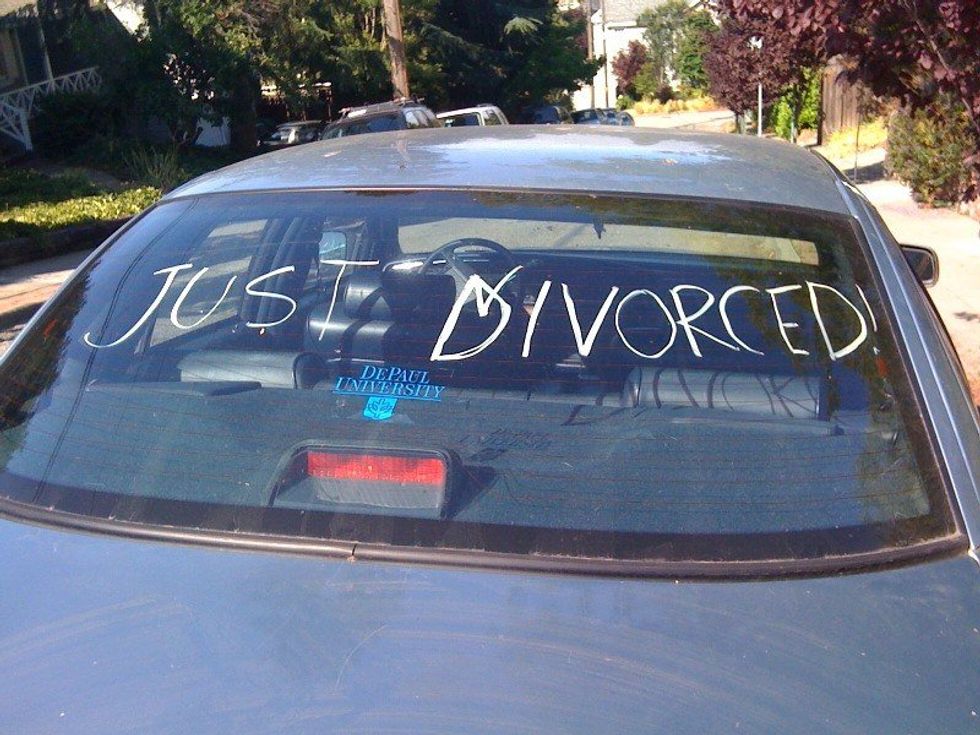Here’s some background on my family as well as a disclaimer: I’m an only child, which made everything a lot simpler for my parents when it was time to evaluate their relationship. My parents also got divorced when I was less than a year old – I have no idea what a real, nuclear family even looks like, except as an outsider. Divorce is so much different when there are other factors involved like number of children, age, years married, etc.; I’m definitely not a mouthpiece for any other kind of family situation except for my own, nor am I saying that any one family dynamic is better than another.
Divorce is never the end-game ideal situation, but my parents took a look at their relationship and mutually recognized that raising a child (me!) properly would be easier separated. When my parents split up, it was during a time when divorce was still an icky word. These days over half of all marriages – approximately 53% in 2011 – will end in divorce before one of the spouses passes away. That was five years ago, and now that millennials are the ones getting hitched, that statistic will change. A recent study predicts that over 25% of millennials won’t get married – that’s not including the ones who do get married and later divorced. Because both of my parents realized that they were capable and independent on their own, they raised me to be able to do the same – my parents don’t expect me to get married and have children (not that they wouldn’t love it and not that it won’t happen, but it’s not an expectation and they know it’s ultimately my decision).
Independence is more achievable as child/teenager/young adult, when you see the two most important people in your life succeed at it. A negative stigma is often associated with single parents, moms especially, and I was very aware of that as a child; seeing both of my parents have full time jobs, social lives, hobbies, and enough time at the end of the day to help me with homework and play with me was important in teaching me that being an adult means being a capable member of society all by yourself.
Both of my parents taught me what they knew: my mom had to teach me to be independent as a woman and instead of perpetuating the idea that I wasn’t safe by myself, she taught me HOW to be safe by myself; my mom showed me how to use pepper spray and how to hold my keys just in case I were ever attacked on my way to my car. She taught me what to do in case of emergency if I was home alone (I remember when I was in elementary school she taught me what to do if my eyeball fell out – I was a very prepared child), like how to speak to a 911 operator or what to yell if a stranger grabbed me in public. My dad also taught me what he knew: how to change the oil in my car, how to wash the dishes by hand, how to ride a bike, anything and everything about carpentry, and how to drive (since I was twelve-years-old). Two parents equal two sets of life experience and skills as well as multiple perspectives on life.
Because my parents were divorced when I was so young, I never got to experience what it’s like to live in a normal family setting. Instead of feeling like I missed out on something, I feel like it’s easier to navigate life since I’m not trying to shove myself in a nuclear box – I don’t have any specific expectations as to what a family should look like.
Just because a divorce made my life better doesn’t mean that I take it lightly or think it’s the answer to all unhappy marriages. It also doesn’t mean that I hate marriage or think every marriage is doomed. I would like to get married myself someday, but as someone who’s seen divorce first hand and actually benefitted from it, I know for a fact that marriage isn’t for everyone – it’s not a necessity in life or something you have to do to achieve the American Dream.




















